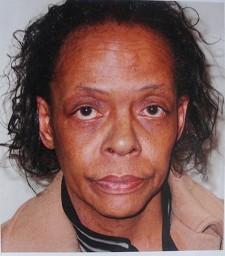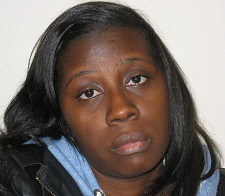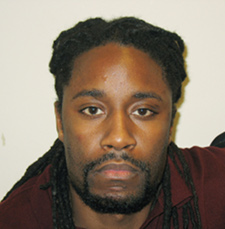
Prosecutors wrapping up case against ‘killer’ mom and grandma

Attorneys to begin defense case in murder trial over child’s death
By Colleen Long
Associated Press
JAY STREET — When Marchella Pierce was released to her mother’s care, she seemed like a happy toddler.
The girl had been born premature and, among her myriad medical problems, had a breathing tube in her throat.
But photos snapped of her while in a rehabilitation facility in Utica depict a smiling, round-faced child. She had been fed through a tube, but in the weeks before she went home, she was learning how to eat soft foods like yogurt, according to testimony in the murder trial of her mother and grandmother. Marchella “didn’t understand what hunger felt like,” one of her caretakers, Aimee Gordon, testified recently.
Seven months later, 4-year-old Marchella was dead. Each of her ribs was visible through bruised, scarred and scratched skin. She had 60 adult doses of Claritin and 30 doses of Benadryl in her system, a medical examiner said. Her stomach contained one kernel of corn.
The case exposed fresh cracks in the city’s child welfare agency, and the girl’s mother, Carlotta Brett-Pierce, and grandmother Loretta Brett were charged with homicide. Defense attorneys will present their case this week.
Prosecutors say that instead of taking special care of the child, the two women tied her to a bed and drugged her, barely feeding her. She died from battered child’s syndrome, Brooklyn prosecutors charged.
“She slowly starved to death,” prosecutor Perry Cerrato said in opening statements.
The outcome of the murder trial may have repercussions for the child welfare workers once assigned to it. They were charged with criminally negligent homicide — among the first cases ever where caseworkers were accused in the death of a child — and have pleaded not guilty.
The caseworkers’ prosecution is “going to be colored by whatever the outcome is in the trial against the mother and the grandmother,” said Jane Spinak a law professor at Columbia University who co-founded the Child Advocacy Clinic there.
“But it’s a much more difficult case to prove,” she said. “Even if they didn’t do everything they were supposed to do, it doesn’t mean they’re responsible for her death.”
Brett-Pierce was sent home with her daughter with instructions on how to care for her child, prosecutors said. However, she was not offered special medical aid, even though she was on the child welfare agency’s radar because she’d testified positive for drugs when she gave birth to Marchella’s younger brother.
But the drug counseling clinic contracted to work with her didn’t connect the dots. Her case was closed.
“She thought she was doing the right thing,” said her attorney, Alan Stutman. “There was no one there to support her. There was no one on the outside knocking on the door.”
 Both Brett-Pierce and Brett say they are not guilty, and they loved the children. Marchella was born 17 weeks early; her twin sister died in the womb. Brett-Pierce’s 6-year-old son testified via closed circuit TV about what he saw in his house; his mother wept.
Both Brett-Pierce and Brett say they are not guilty, and they loved the children. Marchella was born 17 weeks early; her twin sister died in the womb. Brett-Pierce’s 6-year-old son testified via closed circuit TV about what he saw in his house; his mother wept.
The boy said sometimes his sister didn’t get fed, but he often said he didn’t want to talk about what happened at his old home, where he lived with his “old mommy.” On the day his sister died, he said: “I asked my mom what happened and she said my sister fell down the stairs.”
Crime scene photos of the home show a cluttered mess of an apartment — perfume, plastic bags, diapers, coffee cups, VHS tapes, red and silver nail polish, all jumbled together with medical equipment. Boxes of Claritin, sleeping pills and Benadryl were found — drugs used on Marchella, prosecutors charged.
Ropes were tied to the yellow plastic toddler bed where Marchella slept, according to trial testimony. By the time she died, she weighed 19 pounds, about half the weight of an average toddler.
Two juries are hearing the case. The trial is before Brooklyn Supreme Court Justice Patricia Di Mango, who also presided over another high profile child abuse case — the 2006 death of Nixzmary Brown. The 7-year-old was beaten to death under the noses of child welfare workers. Her mother and stepfather were convicted in her death. That case prompted changes to the Administration for Children’s Services that included a new computer system and a cadre of new workers.
But children still fall through the cracks. Child welfare workers tell of exhausting, difficult caseloads and crushing paperwork with little time or resources to do the job. After Marcella’s death, the agency pledged to do more once again, a fresh round of changes were ordered, and more money allotted.
Some say charging caseworker Damon Adams and supervisor Chereece Bell went too far — and won’t do anything other than scare off potential employees.
“The fact the case is going forward really raises questions about who we are holding responsible,” Spinak said. “It’s hard to draw the line. I do think the issues raised are important to discuss: What is the personal liability of a worker, compared to what the systemic responsibility is for these children?”
Leave a Comment
Leave a Comment


